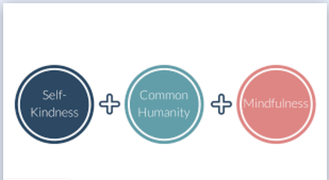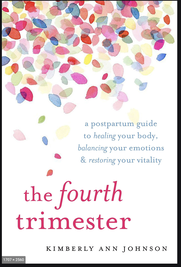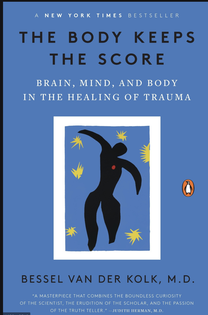Red Bank Psychological Services Blog
Our thoughts on mental health therapy, neuropsychology, and more.
|
What is It?: The United Protocol for Transdiagnostic Treatment of Emotional Disorders (UP) is a specific psychological treatment that has been proven effective in controlled research at the Center for Anxiety and Related Disorders at Boston University. It’s designed to give you concrete skills over a three month period that you can use to help manage strong emotions in everyday life.
Who Is It For? It can help teens and adults who are struggling to manage intense emotions, no matter what the diagnosis. It’s been shown to help people struggling with anxiety, depression, bipolar disorder, dysregulated anger, obsessive-compulsive disorder, and/or post-traumatic stress disorder. What all these disorders have in common is excessive or inappropriate emotional responding accompanied by a sense that one’s emotions are getting out of control. How Does it Work? The goal of UP is to help people understand and manage their emotions in ways that help them reach their long-term goals. It’s an active, present-focused therapy where you learn: -How to break down emotional experiences to understand them more clearly -Mindfullness -How to be more flexible in the way you think about situations that present intense emotions -How to experience and deal with uncomfortable physical sensations -How to try new, improved behaviors when experiencing strong emotions. For more info, check out this article: https://www.psychologytoday.com/us/blog/finding-new-home/202111/new-way-treating-depression-trauma-and-anxiety To to see if UP seems right for you, call Dayna Stein, MST, MSW, LCSW at 908-907-3636 or reach out to dayna@redbankpsych.com for a free 15 minute consultation.
0 Comments
 Men have tough days. Men feel misunderstood. Men worry. Men suffer. So, why does society expect them to stuff down their feelings and “man up”? It really doesn’t make sense. As a clinician in private practice in Red Bank, NJ, my specialized work with men gives them space to express their emotions without anyone else’s judgement, problem solve with logic, and get “unstuck” from whatever situation they may find themselves in. It’s unusual to find a therapist who specializes in individual therapy with men. Males make up only one third of all counseling clients in the US, but being a male carries a higher risk of suicide completion, alcoholism, attention deficit disorder, and a range of other mental health difficulties. On top of that, compared to women, men have fewer close relationships, making their struggles potentially isolating and lonely. What makes the fact that men tend to shy away from formal mental health services extra disturbing is that, by and large, men and women have the same wants and needs. Men deserve to have an unbiased sounding board to help them process life’s bumps, and that’s where therapy comes in. Can a woman be a good therapist for a man? One of the biggest determining factors if therapy will be successful is how well a person is able to connect with their therapist. A person needs to feel that his therapist is nonjudgmental, interested in what he has to say, and accepting of him exactly as he is. You can expect this from me. I’ve worked with men regarding topics as sensitive as porn viewing, cheating on a significant other, and sexual abuse. So, if you are ok talking about something, then I am too. Men sometimes don’t want to talk about a problem as much as women do—they just want to fix it. This is not a judgment or a bad thing, but rather just a difference between the genders. This is something I understand well, and am good with it. Also, it might make more sense for a man who is having relationship concerns with a female to share his stuck points with a female therapist who may be able to view the problem from a different lens than a male therapist. While a man's first instinct may be to seek out a male therapist for treatment, he should give fair consideration to working with a woman. My client and I build rapport over a few sessions, and then set out treatment goals for future sessions. If we both work hard, my client can reach his goals. If you think this kind of approach might work for you, please call me at 908-907-3636 for a free 15 minute consultation where we can decide together if making an appointment is the right move. (Telehealth appointments available.) Dayna Stein, MST, MSW, LCSW is a Licensed Clinical Social Worker and certified in Trauma Focused-Cognitive Behavioral Therapy (TF-CBT) and Cognitive Behavioral Therapy and Hypnosis for Fatigue (CBTH). Dayna earned degrees from Boston University, New School University, and Monmouth University, and prior to private practice in Red Bank, NJ, she specialized in trauma therapy at Catholic Charities and New Hope Integrated Behavioral Health Care, both in Monmouth County. Although she works sometimes with teens and women, she specializes with adult men.  . If you’ve been watching some pandemic tv hits, like the latest seasons After Life on HBO or Ozark on Netflix, you have probably gotten the wrong idea about the routines, ethics, and help that come along with real-life mental health treatment. Combine those fictions with stigma in our culture about mental health, and you have the makings for misinformation about therapy. As a Licensed Clinical Social Worker with a Red Bank, NJ private practice, I’m here to clear some things up. 1.Myth: Going to therapy means that you are weak or crazy. Truth: Reaching out to a professional for help, demonstrates that you are strong enough to show vulnerability, and smart enough to know that sometimes you can’t fix things alone. Plus, the pandemic is one of the toughest times in our nation’s history, and virtually everyone has been touched by it negatively one way or another. 2.Myth: Going to therapy means you have to drudge up stuff about your childhood. Truth: The work I do with clients is solution-focused, meaning that although you may wish to discuss your history with me, we usually set goals that work on how to incorporate new skills and thoughts to make positive change moving forward. 3.Myth: Only people with serious problems go to therapy. Truth: While some people wait until a crisis happens to fix an issue, those who seek professional help when something starts to unravel will likely find the problem minimized or resolved quicker and easier than those who wait for the crisis. No one needs to struggle alone with any problem. If something is a problem to you, then it is a problem. 4.Myth: I have friends and family members to talk to, so I don’t need a professional. Truth: Sometimes even well-intentioned friends or family members have an agenda, a way they want to see your situation develop. A therapist has a neutrality that friends and family occasionally don’t have. Plus, not only are therapists trained for years to learn how best to help you, but also sometimes having to be your counselor can be really stressful for your friend or family members. A professional can relieve this strain. Further, by law, a mental health professional must keep your information confidential (except in the event of a client stating that he wants to hurt himself or someone else). In contrast, sometimes friends or family members are not good secret keepers, even when we want them to be. 5.Myth: Therapy is too expensive and not worth the money. Truth: What can be more worthwhile than investing in yourself, your health, and your happiness? Almost nothing tangible can be more valuable than that. Plus, my rates are barely higher than those of a good plumber or hair stylist. 6.Myth: Once I start therapy, I am going to be stuck in it forever. Truth: Most of my clients see me for hourly sessions weekly for six months to a year, but some for as little as three months. How long and how often depends completely on you, your issues, and your goals. 7.Myth: Therapy is not real science and too touchy-feely. Truth: My style is warm, but direct. You won’t find me being too gushy or extremely spiritual. I’m licensed by the state of NJ to do this work, and while being trained two years post-graduate, I studied different types of evidence-based methods and completed two years of clinical internship in local agencies. 8.Myth: If my therapist hasn’t had my problem, then she won’t be able to help me. Truth: I’m old enough to have had my share of setbacks. Moreover, the most effective ingredient in a therapist is the ability to have empathy. And that, I have lots of. 9.Myth: A therapist is going to force me to take medication. Truth: Research shows that for some diagnoses such as depression, the best results come from a combination of talk therapy and medication. However, as a licensed clinical social worker, I do not prescribe any medications. Whether or not you choose to explore the idea of medication with your primary care doctor or a psychiatrist is generally completely up to you. In my office, we work on talk therapy only. Call me today for a free 15 minute consultation to figure out how to best to move forward in your life. 908-907-3636 Dayna Stein, MST, MSW, LCSW is a Licensed Clinical Social Worker and certified in Trauma Focused-Cognitive Behavioral Therapy (TF-CBT) and Cognitive Behavioral Therapy and Hypnosis for Fatigue (CBTH). Dayna earned degrees from Boston University, New School University, and Monmouth University, and prior to private practice in Red Bank, NJ, she specialized in trauma therapy at Catholic Charities and New Hope Integrated Behavioral Health Care, both in Monmouth County. Although she works sometimes with teens and women, she specializes with adult men.
 When you think about hypnosis, maybe you recall the film, Good Will Hunting (1997), where the main character, Will Hunting (played by Matt Damon), undergoes attempted hypnotherapy, poking fun at the process by producing ridiculous answers to the therapist's (Robin Williams) questions. Or maybe you think of the more recent movie, Get Out (2017), where the Armitages transplant brains; hypnosis is used to transport the conscious mind of the host into "the sunken place" where they are conscious but powerless. Most tv shows, stage shows, and movies exaggerate or twist the idea of hypnosis, but in reality, hypnosis is a well-researched and effective form of supplemental treatment for a range of issues including fatigue, chronic pain, anxiety, and distress. Let's clear things up about hypnosis: What is hypnosis? Hypnosis is an agreement between the client and therapist to provide suggestions for how to use your mind to control any emotional distress or fatigue you might experience. Hypnosis is like focused attention or concentration. Most people describe it as a pleasant, relaxing experience, sort of like being so lost in a book, music, or movie that you lose track of what's going on around you. Hypnosis involves learning how to use your mind to help you feel better. There is no one right way to experience hypnosis; the client simply needs to be open and listen to the sound of the therapist's voice. Hypnosis is NOT a magic spell. Does hypnosis work? Yes, research as shown that up to 89% of clients who try hypnosis benefit from it. And, even those who don't respond immediately to it can become more responsive to hypnosis with practice. It's a non-invasive, brief (15 minutes a session) technique that is worth a try. Eventually, you can do it to yourself at home, saving you both time and money. Health care providers have been using hypnosis to benefit patients for over 200 years.
Am I the type of person who can be "hypnotized"? Hypnosis is not a yes or no, all or nothing kind of thing. Instead, hypnosis works at different levels for different people. Most of us are in the middle, but some of us will be lower or very high, in terms of its effect. And, with practice, you can become more hypnotizable over time. Do I have to give up control for hypnosis to work? No! Stage shows, tv, and books typically present inaccurate, frightening, and misleading depictions of hypnosis. You will not be under the therapist's control. You will not be asked to do anything embarrassing. You do not have to do anything that you don't feel comfortable doing. You will neither be asked anything about past-lives nor traumatic memories. The focus is only on reducing emotional distress and fatigue. I'm pretty strong-willed and skeptical, so do I have a chance at this working? Yes! Some people mistakenly believe that only gullible, weak, or "new-agey" people are hypnotizable, but that is a myth. Hypnotic suggestibility is actually not associated with any personality trait in particular. You can be strong-minded and still benefit from hypnosis. Benefitting from hypnosis has more to do with how open you are to trying it, how well you expect it to work, and how willing you are to let yourself become absorbed in the experience. In fact, a strong mind and mental control can actually be very helpful in focusing and concentrating on hypnotic suggestions. What if I become "out of it" and get in a trance? Hypnosis is nothing like the feeling of taking a powerful tranquilizing drug. There is no spell, no sleep, no trance, and you are not under anyone else's control. You would be no more "out of it" than you would be during yoga, imagery, or other mind-body therapy. What if I attempted hypnosis before somewhere else for a different problem and it didn't work? The effectiveness of hypnosis depends on the problem you are trying to minimize, the setting, your mindset, and the training of the therapist. The past is not a good predictor of the future in this case. Trying it again would not be a bad idea. I'm not good at relaxing or meditation so will hypnosis work? Hypnosis does NOT require deep relaxation. It's more like drifting or daydreaming. In fact, research has shown that people can be hypnotized even when they are actively riding an exercise bike. Hypnosis and relaxation are not the same phenomena. Being anxious or hyper could mean that you are actually really motivated to benefit from hypnosis and have the most room to grow. Hypnosis is just one tool within comprehensive mental health therapy. The choice is yours, both in the decision to try hypnosis, and then what actually happens during hypnosis. Dayna Stein, MST, MSW, LCSW is a licensed clinical social worker and certified in Cognitive Behavioral Therapy and Hypnosis for Fatigue (CBTH). CBTH is an evidence based behavioral health intervention developed by the Icahn School of Medicine at Mount Sinai, Integrative Behavioral Medicine Program. Dayna earned degrees from Boston University, New School University, and Monmouth University, and prior to private practice in Red Bank, NJ, she specialized in trauma therapy at Catholic Charities and New Hope Integrated Behavioral Health Care, both in Monmouth County. If you are human, then you sometimes feel anxious. It's not a great feeling, but it's perfectly normal. If your anxiety is getting in the way of your daily functioning, then you should consider seeing a mental health care provider who can help you gain control over your anxious thoughts. But, if you are simply feeling a little nervous or worried, these tips from the pros may help you relax.  Anxiety happens most often to me in the middle of the night, if I awake from sleep. My thoughts can start to ricochet from minor blips to serious issues and back. The best way that I find to manage ruminations is with the app, Calm, especially its "Sleep Stories." These soothing tales and non-fiction pieces delivered by talented voice-over professionals help distract my brain from any worries and lull me right back into a deep sleep in about 20 minutes or less. For more information, and a free trial, click here. You can connect with Dayna Stein, MST, MSW, LCSW. (She has no affiliation with the creators or publishers of the app.)Stories are soothing tales read by well-known voices to help people unwind and fall into a deep sleep each evening.  As a Mom and Psychologist, managing stress and anxiety are critical in order to take care of my family and patients. My main strategy for managing anxiety is to exercise. The combination of weight training and running, works best for me. When my schedule is particularly chaotic, I slow things down by practicing brief mindfulness exercises. For example, when I am spending time with my daughter, I smell her hair, rub her arms and engage my senses while being present with her. If I am alone, I will close my eyes, take several deep breaths, and listen for the most distant sound I can hear. You can connect with Nicole Amoyal Pensak, PhD..  When I get anxious, I go right to my radio dial or my guitar. Music shifts my focus away from what's causing me to stress out. It soothes me, even if the style of the music itself isn't that soothing. Music doesn't just distract me; it also can lower heart rate and hormone levels. It triggers the brain to release endorphins, increase dopamine levels, and block pain, all which boost mood. When you are worried, turn on some tunes you love. You can connect with Lawrence Stein, PhD.  I spend a lot of time in my car, running here and there and am usually anxious about running late. Too often I am running on “auto-pilot” and arrive to where I am going with little recollection of the actual journey. Over the past few years, I have made a conscious decision to pay more attention and have more compassion for myself and others. Self-compassion has been associated with less symptoms of anxiety and with positive psychological functioning. By applying the three elements of self-compassion (Self-kindness, Common humanity, and Mindfulness), I have experienced a change in my own relationship with anxiety. Rather than struggling against the anxiety, I learned to work on reducing self-judgments, I learned that it is important to remind myself that anxiety is a part of being human, and I began to notice my thoughts and feelings more regularly - allowing them to move on without becoming attached. You can connect with Maria Nakhleh, LCSW. When I am feeling anxious, I like to use mindfulness to help me ground myself and become more attuned to my inner chatter. Mindfulness is a lot of things to different people - for me it’s having awareness of the inner chambers of my heart, body, and spirit without any judgment. On most days and especially when I have added feeling s of anxiety, I use a technique that brings consciousness to my inner-workings, reduces stress, and creates acceptance of MY present moment. It’s really simple, for just 5 minutes a day (or longer if time allows) I try to find a safe, quite place to check in with myself. Meaning - what is happening with Anna today? What is her mind telling her? What is her heart searching for? What are the bodily sensations that accompany all of this? This simple daily check-in allows me to notice and acknowledge my inner presence. If I want to cry - I cry, if I feel like giving myself a good pep talk - I do. Even if my anxiety doesn’t fully subside – checking in with myself helps me acknowledge my thoughts and emotions in the present moment and allows me to give myself more self-acceptance and love. Try this simple mindfulness practice each day and start developing a better relationship with yourself! You can connect with Anna Zonen, LCSW. While it has not been an easy Spring for riding bicycles or walking the boardwalk, there have been many good days to curl up with a good book. My colleagues and I are here to help you hold out until Summer with some titles we recommend. Some are heavier than others, but they are all intriguing...  Staring at the Sun: Overcoming the Terror of Death is written by a therapist, Irvin D. Yalom, who treats therapists. Yalom, in his 80’s, deals with his own mortality, his clients’, and his clients’ issues with their own mortality. Very clear, kind, and insightful guidance are rendered in Yalom’s sensitive and intelligent words. You can connect with Tom Magnus, LPC.  The Story of Arthur Truluv by Elizabeth Berg is worth reading. Although I can’t take credit for the impetus to read the book (I credit my local book club), Berg is one of my favorite writers. She often writes about the families we build in non traditional ways. This book is no exception. It’s short, lovely, and reminds you what you love about people. You can connect with Liz Walter, LCSW.
 The Fourth Trimester by Kimberly Ann Johnson is an excellent guide for women postpartum, including those with Perinatal Mood Disorders and birth trauma. It examines postpartum healing on physical, emotional, relational, and spiritual levels. As a social worker, I am always looking at the "person in environment" and providing treatment that is holistic. This book fits the bill. You can connect with Geraldine "Gerry" Viggiani, LCSW, LCADC, PMH-C.  A favorite book is "When things Fall Apart: Heart Advice for Difficult Times" by Pema Chodron. It is about facing difficulties in life, regardless of what those difficulties are. It is written from a Buddhist point of view. I actually prefer the audio book version which is read by Pema Chodron herself. You can connect with Marcella DiFedele, MS, LCSW.  The Body Keeps the Score by Bessel Van der Kolk, MD, a renowned trauma expert, talks about how trauma reshapes both the brain and the body. Trauma gets trapped in our memories and our bodies, and manifests in a physical way. Van der Kolk explains how body-brain therapies such as EMDR and yoga can activate the body's ability to heal trauma. The body is everything in healing! Some clients with eating disorders struggle with a history of trauma and use their symptoms to cope with unwanted thoughts, feelings, or body sensations. By becoming attuned to how the body manifests trauma, we can better heal the way the brain regulates the body. You can connect with Kimberly Kahn, LCSW. Several of my clients right now are grasping with the same issue. Their romantic relationships seem to have more struggles and fewer cuddles than they did when they first began. My clients are trying to figure out if these conflicts are simply growing pains, and a normal part of a long-term relationship, or if they are deal breakers, and should pave the way to an exit. What one should do, of course, is not a question that any therapist can answer for you. However, therapists can help you gain clarity, support, and confidence when making a decision.
So what are some of the serious signs of a romance going South? I agree with the author in this Time magazine article, How to Know When it's Time to Let Go of Someone You Love who points to these signs that it may be a no-go:
One of the most common reasons my clients give for staying in a relationship that is not working well is because they are afraid to be alone. Most of the time, this fear is unfounded. Why? Because after a grieving period after a break-up, there is typically a feeling a relief and renewal when one regains freedom and "gets back out there". Dayna Stein, MST, MSW, LCSW is a licensed clinical social worker in a Red Bank, NJ private practice and part-owner of Red Bank Psychological Services. She works with clients who are feeling stuck and has current openings in her schedule. Have you been referred to a psychologist by a school or medical professional because it’s suspected that your child may have Attention Deficit Hyperactivity Disorder? I’ve noticed in my private practice how confused and overwhelmed caregivers can get when faced with this task. When they initially contact my Red Bank, New Jersey office, they are unsure about what an evaluation will entail and what kinds of useful information it will uncover. Below are 5 valuable and frequently asked questions parents ask in their first phone call or initial visit to me.
1) What exactly happens during an evaluation For ADHD? A child neuropsychological examination should be comprehensive and extend over the course of several visits. That means the examiner over a period of time will want to meet with at least one parent or guardian, the child, review medical and school records, interview a teacher, and conduct a wide variety of intellectual, academic, cognitive, psychological, and social assessments. All testing data, should be scored and statistically compared to other children or adolescents your child’s age. 2) What are the tests like? Kids engage with the tests using an iPad. This tool speeds up the comprehensive process and provides accurate results. The tests themselves present a wide variety of tasks ranging from visual and verbal attention to reading comprehension. For most, testing begins at an easy level and becomes more challenging as the child progresses. 3) Why is about six hours of testing necessary? Attention Deficit Hyperactivity Disorder is challenging to correctly assess and cannot be accomplished through simple observation. Also, children and adolescents with ADHD are very likely to have a second or even third diagnosis that includes additional types of learning disabilities, anxiety, and/or depression that all can impact school and social functioning. In order to boost the child’s academic and social functioning, other diagnoses must be identified or ruled out. 4) Who will do the actual testing? Dr. Stein. In addition to the data gathered through interviews and the iPad, he takes this opportunity to observe and gain insightful information about the student. He gets first hand observations of how the child problem-solves challenging test items and handles frustration. By the end of testing and observation, he learns about the child’s personality very well and is able to comment on other important aspects that may impact academic functioning such as anxiety, impulsivity, or inattentiveness. 5) What happens once testing is completed? After the assessment procedures are finalized and the data has been analyzed, Dr. Stein writes a detailed report, about 12 pages long, regarding the child’s medical, social, and academic history. The report will also describe the child’s intellectual, academic, and psychological functioning in terms of strengths and weaknesses. Dr. Stein provides an accurate diagnosis or diagnoses, and most importantly, recommendations for treatment and academic interventions. The report is easy for parents and guardians, teachers, and other healthcare professionals to read and understand. The report can also be used as a baseline measure to the effectiveness of both academic and treatment interventions and/or for a school Individual Educational Plan. If you think your child or teen would benefit from a psychological evaluation for ADHD, or a learning disability, please call me at my Red Bank, NJ office at 732-747-8818 for a free 15-minute consultation where we can decide together if making an appointment is the right move. Obtaining psychological clearance before you begin a trial period of spinal cord stimulation is routine, but many people are unsure about why this is such an important step.
Spinal cord stimulation uses electrical current to minimize the feeling of pain reaching the brain. It involves insertion of small devices in the area around the spinal canal, which send the current when activated. Following are a few common questions people ask about the required screening session with a neuropsychologist and how the results can be used to help meet your needs. Q: Does a referral to a neuropsychologist mean my surgeon thinks I’m crazy or will go crazy after the stimulator placement? A: No, but not everyone responds well psychologically when a foreign device is implanted into their body. For some, the stimulator can cause an increase in worry and anxiety. Unfortunately, this stress can reduce the effectiveness of the simulator placement. In part, the pre-surgical clearance examination helps your physician prepare you for the procedure and make recommendations to help you adjust to this new part of your body. Q: What happens during the pre-surgical psychological examination? A: Sometimes patients who have never met with a psychologist before get anxious about the initial visit. Knowing what to expect can help decrease worry. Typically, the examination consists of a conversation between you and the psychologist about your medical history, including your chronic pain struggles. It also involves a social history, family history, information about previous alcohol or substance use, and what kind of psychological treatment you may have had in the past. Q: What if I am depressed or anxious? Will that stop me from having the stimulator placement? A: No. In fact, chronic pain patients are much more likely to suffer from depression and anxiety than the general public. It is typical and expected that people living with chronic pain will have high levels of irritability, anxiety, and depression.Also, pain relief often helps decrease depression and anxiety. If you are struggling with depression and/or anxiety, the pre-surgical clearance evaluation will offer recommendations to help diminish these feelings. Q: Can the psychologist make other recommendations besides the stimulator? A: Yes. The psychologist can be a valuable member of your pain management team. Many people find that alternative or complementary treatments, such as biofeedback and mindfulness approaches, can be helpful in helping manage chronic pain. Psychologists can guide people in these therapies as well as provide traditional psychological counseling. Q: How long is the appointment and can the screening usually be done in a single appointment? A: Typically, an evaluation takes two hours and—depending on your insurance—can be done in one appointment. Following the evaluation, the results are shared with you and your physician. Q: Are most people cleared to proceed with spinal cord stimulation?: A: While most people are cleared to have the trial placement of the stimulator, a small number of people are not. Those who are experiencing hallucinations, delusions, and cannot understand and follow post-operational directions should not have a stimulator. Instead, complementary and holistic interventions such as mindfulness, cognitive-behavioral therapy, or biofeedback may be a more effective option for pain management. If you have any questions, feel free to call me in my Red Bank, NJ office at 732-747-8818. Five Ways to Escape Falling Prey To The Anger Trap - Here's Dr. Stein's take in "The Good Men Project" on how to reduce your anger.
|
AuthorsDayna Stein, MST, MSW, LCSW: Therapist, Educator, Parent, Movie Buff, & Travel Enthusiast. Archives
March 2022
Categories |
|
732-747-8818
|
316 Broad Street - Suite 1, Red Bank, NJ 07701
|